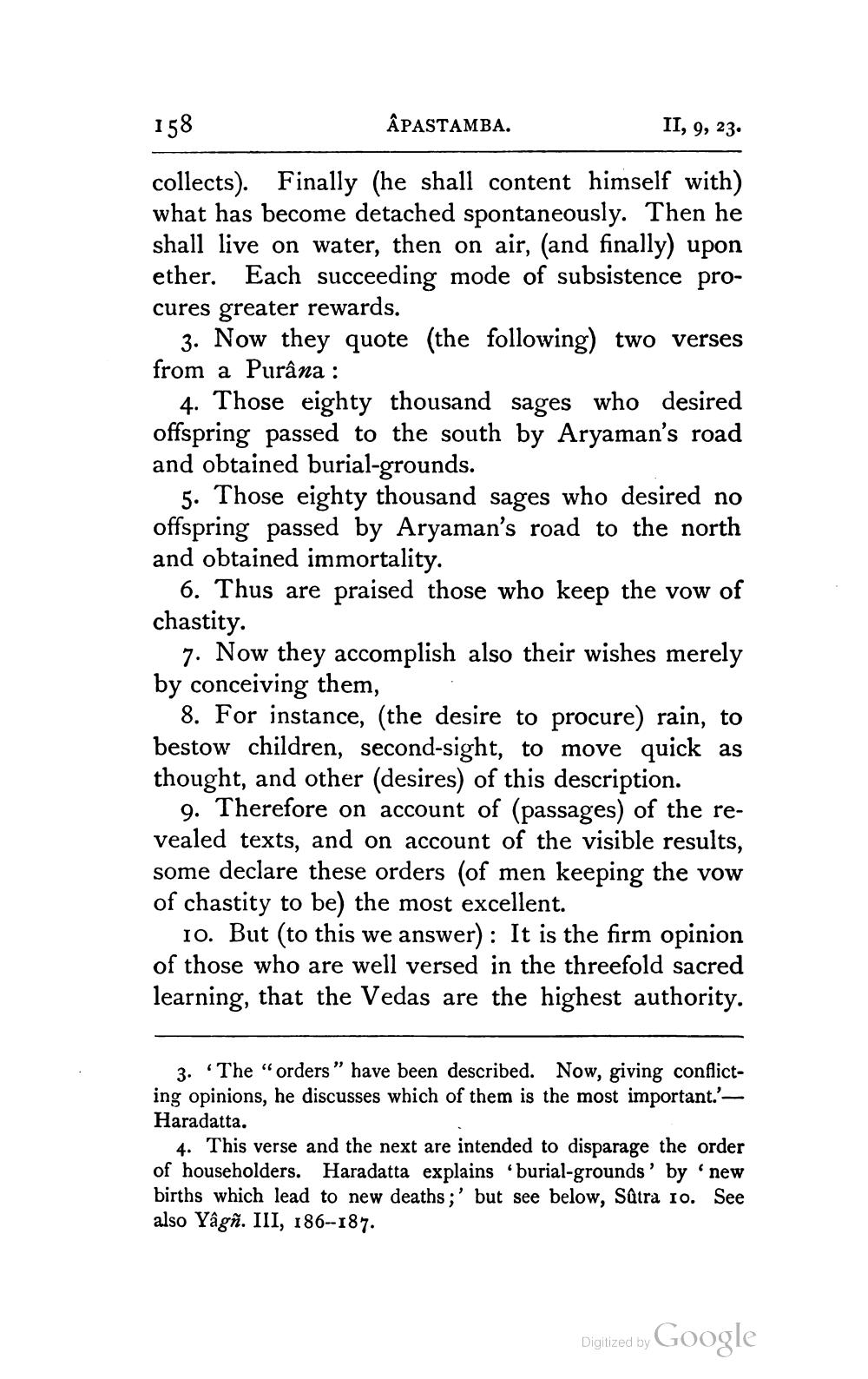________________
158
ÂPASTAMBA.
II, 9, 23.
collects). Finally (he shall content himself with) what has become detached spontaneously. Then he shall live on water, then on air, (and finally) upon ether. Each succeeding mode of subsistence procures greater rewards.
3. Now they quote (the following) two verses from a Purâna :
4. Those eighty thousand sages who desired offspring passed to the south by Aryaman's road and obtained burial-grounds.
5. Those eighty thousand sages who desired no offspring passed by Aryaman's road to the north and obtained immortality.
6. Thus are praised those who keep the vow of chastity.
7. Now they accomplish also their wishes merely by conceiving them,
8. For instance, (the desire to procure) rain, to bestow children, second-sight, to move quick as thought, and other (desires) of this description.
9. Therefore on account of (passages) of the revealed texts, and on account of the visible results, some declare these orders (of men keeping the vow of chastity to be) the most excellent.
10. But (to this we answer): It is the firm opinion of those who are well versed in the threefold sacred learning, that the Vedas are the highest authority.
3. “The “orders” have been described. Now, giving conflicting opinions, he discusses which of them is the most important.' Haradatta.
4. This verse and the next are intended to disparage the order of householders. Haradatta explains burial-grounds' by new births which lead to new deaths;' but see below, Sūtra 1o. See also Yâgñ. III, 186-187.
Digitized by Google




